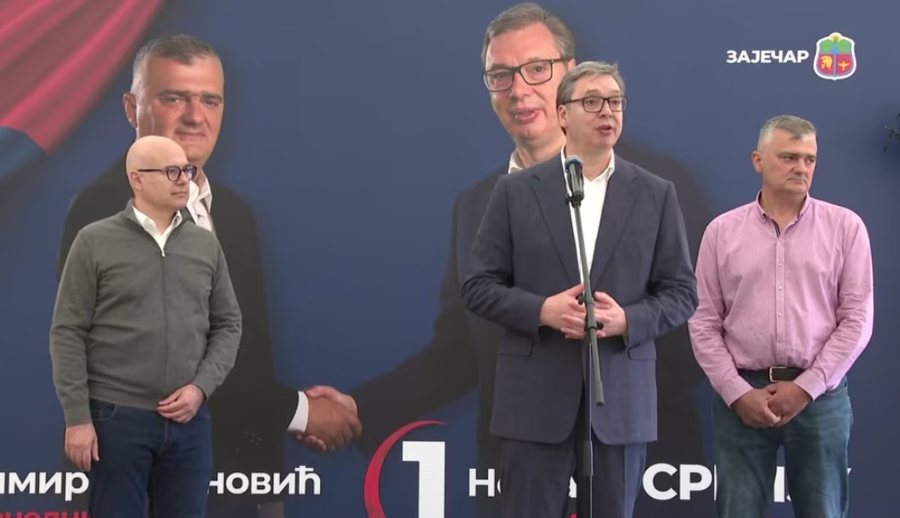
The June 8 local elections in Kosjerić and Zaječar - municipalities in western and eastern Serbia - are expected to be the first electoral test for the government and the opposition in Serbia since student protests erupted after the collapse of a shelter at the Novi Sad railway station on November 1 last year.
In both of these municipalities, the Serbian Progressive Party (SNS), founded by Serbian President Aleksandar Vučić, has been in power for years.
For this reason, even though they are municipalities with few inhabitants, they have become an important topic in recent weeks and essential visit destinations for senior state officials, including Vučić himself.
Kosjerić has about 10 thousand inhabitants, while Zaječar has close to 48 thousand.
"For the first time, we will see whether the decline of the SNS, which we have observed in several polls and which is clearly reflected in the social atmosphere, will translate into concrete results," political scientist Dejan Bursac, from the Institute for Political Studies of the Faculty of Political Science in Belgrade, told Radio Free Europe.
What are the students' demands?
Protesting students are demanding that responsible institutions publish full documentation on the reconstruction of the Novi Sad Railway Station and the collapse of the shelter - which caused the deaths of 16 people - to determine responsibility for the tragedy.
They also demand that the people who attacked protesters across Serbia following the incident be identified and prosecuted.
Other demands include the release of activists arrested during the protests and the cessation of criminal proceedings against them, as well as an increase in the budget for universities.
Since May, a key demand has been the announcement of new elections, in order for the new government to address and fulfill these demands.
Why are the elections in Kosjerić and Zaječar important?
The SNS, which leads the government and has governed Kosjerić and Zaječar for more than a decade, will try to maintain its lead in the June 8 local elections in these municipalities.
The elections are considered the first test of the support enjoyed by the SNS after months of political crisis, accompanied by student protests and their blockade of faculties.
In Kosjerić, the opposition responded to the call of local students, removed party symbols and submitted a joint citizens' list.
The protesting students supported this initiative, demanding that citizens vote united.
On the other hand, the leader of the Socialist Party of Serbia, Ivica Dacic - whose party is the SNS's partner in the government - during a visit to Kosjerić on June 1st, called on voters to support the coalition's joint list.
Unlike Kosjerić, in Zaječar, the opposition did not reach an agreement on participating in the elections together.
Bursaç says that the opposition-student agreement in Kosjerić could serve as a model for similar organization at the national level, if the government accepts the students' demand for early parliamentary elections.
"At the local level it's easier, because the communities are small and people know each other, and party funding doesn't usually come from the local level. But this is a choice that the opposition has to make. I think they also know that if their goal is to overthrow the Vučić regime, then maybe they have to sacrifice party interests," says Bursac.
They said they decided to take this step because "the government is not taking any initiative" to fulfill their demands.
For this request, they also received the support of most opposition parties and movements.
If elections are called, the protesting students said they will not present a list of candidates for MPs, but will give their support to a list they believe could form a government that would meet their demands.
However, in several broadcasts, they emphasized that the list they would support would not include representatives of the current opposition.
Responding to the request to call new elections, Vučić said that he will act in accordance with the needs of the country and the people and that, based on them, he will make decisions./ REL (A2 Televizion)











